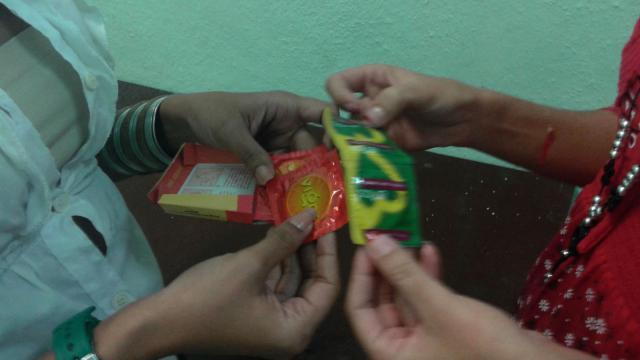
On the trail of the missing condoms
CIENFUEGOS, Cuba — The iffy supply of condoms in Cuban pharmacies and markets in recent months has meant greater risk for some and an impediment to others who prefer to restrain their libidos rather than fall sick or become pregnant.
The situation seems to have settled since early April but has been intermittent for more than a year, in another recurring episode of bureaucratic mismanagement and shortages.
“I don’t know what’s happening, but I know that they’re not available,” says a young student of medicine, who adds a warning about the danger posed by the lack of condoms. “The indices of pregnancies and abortions are up, and so are the sexually transmitted diseases,” (STD) he says.
The condom conundrum
According to the Public Health Ministry, the interruption in the distribution of “preservativos” occurred because of the need to repackage millions of units of the “Momentos” brand, which arrived from China showing an expiration date of 2012 although they’re good until late 2014.
The process meant recalling the product throughout the island and relabeling it, in the absence of new supplies of other brands or even the same brand.
Evidently, it has been impossible to solve the problem quickly, because the health authorities on April 7 authorized the sale of condoms without correcting the “printing error,” according to an announcement by the Medical Supplies Enterprise and the Center for the State Control of Medications, Medical Equipment and Devices (CECMED).
As articles for medical use, condoms are heavily subsidized, because the price of a strip of three units is barely 1 peso — less than five cents of a dollar. But the fact that they are a product managed only by the health authorities means that the market leaves little room to choose.
“Although the Momentos condoms have never been among the better accepted, they’re the ones that the government bought and they’re the only ones that are available until year’s end,” admits one of the specialists in the STD/HIV/AIDS-prevention program.
He sides with those who say that Cuba does not import products from wherever it wants but from wherever it can, due to the lack of money and the U.S. embargo.
Until recently, Cubans could buy other condoms sold under the brand names “Love” and “Vigor” (the latter a product financed by the United Nations World Fund) but the contract with the makers of the former was not renewed and the latter used up the five years of international financing it had for its production.
Not just quantity; quality, too
“The Momentos are supposed to be tested electronically, but I don’t believe that because, when you open them, it is obvious that they have very little lubricant,” says Claudia Martínez, a young radio reporter in south-central Cuba.
“I’ve found that the condoms sometimes break,” says a 19-year-old girl. Her opinion on the quality of the available condoms coincides with those of many others.
“The number of condoms that break matches the proportion established by the international parameters,” says Ramiro Espinosa González, chief of the anti-AIDS program in Cienfuegos province.
“There are condoms with better quality and others with standard quality, but all meet the international requirements for safety,” Espinosa says. “When they break, it’s almost always because of the improper technique used to slip them on.”
According to medical indicators, for a population to consider itself “sexually protected,” it must use condoms in at least 73 percent of all the acts of copulation.
The reality in Cuba is far from that objective. In a small province like Cienfuegos (pop. 400,000) only 28 percent of the sexually active population uses prophylactics, yet it’s one of the provinces with the highest condom usage.
Colors and types of every variety
Some users are advocating an increase in the supplies but without state subsidy, so as not to depend on just one option.
In some stores, condoms are sold in convertible pesos, or CUC, a unit of currency equivalent to one dollar or 24 “national” pesos, or CUP, but the prices are a strain on a Cuban’s average income. A box can cost as much as 1.80 CUC (almost 50 CUP), one-eighth of the average monthly wage in Cuba.
In the face of a fluctuating supply, a momentary solution is solidarity.
“Friends tell each other who has [condoms] and where. They share a few of them, because the only option is abstinence, if we don’t want to contract a disease or become pregnant,” says blogger Alejando Ulloa, one of the many young men who have to walk up and down the streets of the capital to find a condom or the answer to why they disappeared.
(From eltoque.com)

